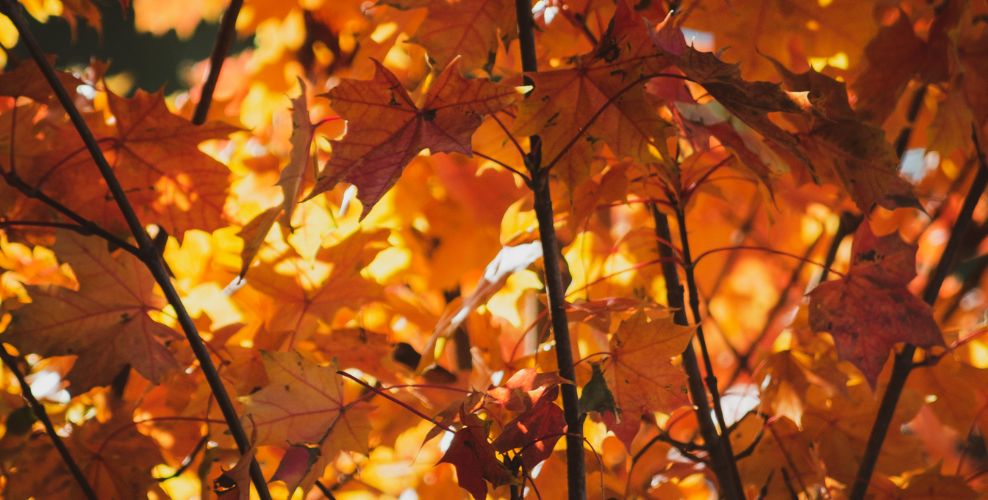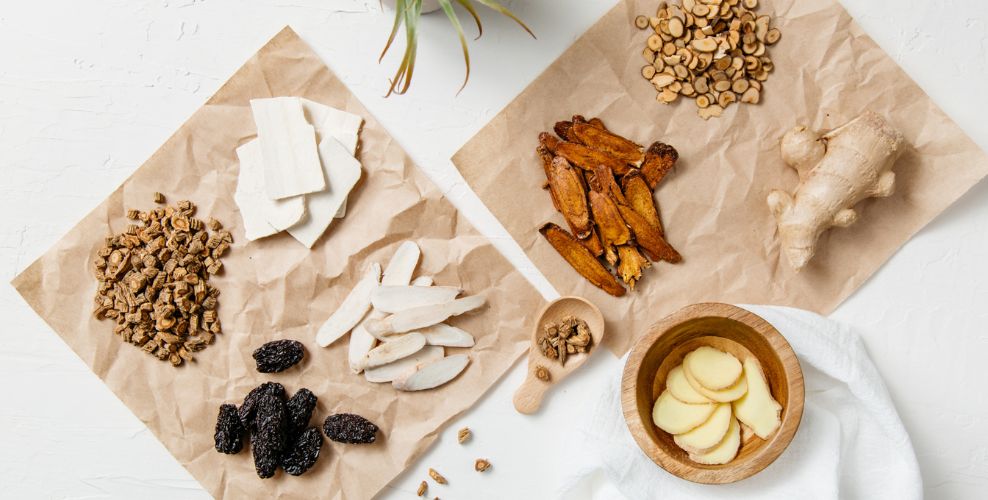Supporting your health this Autumn with traditional Chinese medicine (TCM)
In TCM, autumn is associated with the element of metal, which represents organization, structure, and the ability to let go of what is no longer needed. Here are some key concepts and tips for staying healthy during the autumn season in TCM.

The Metal Element
The metal element is associated with the lung and large intestine meridians, which are responsible for respiration, immunity, and elimination. These organs are particularly vulnerable during the autumn months, when the air becomes dry and cooler. To stay healthy, it is important to protect these organs by staying warm, avoiding cold foods and drinks, and practicing good hygiene.
What organs are associated with Autumn in TCM?
The lungs control the circulation of the wei-qi which is the defensive qi that protects you from the invasion of colds and flus. According to TCM, a weakness in the lungs can lead to a weakness in wei-qi, making a person prone to frequent colds. Metal is the energy of the lung (yin) and large intestine (yang) meridians. The Lung meridian is associated with 'grief and loss', of attachment, organisation, and setting limits and protecting boundaries – breathe in the new to clear and cleanse. Autumn is a transitional season from the height of Yang, which is summer, into the beginning of Yin, which is autumn.
TCM Autumn Associations:
- Element: Metal
- Colour: White
- Time of day: 3-5am
- Body Tissue: Skin
- Sense organ: Nose
- Internal organs: Lung & Large intestines
Common symptoms of Autumn:
- Dry lips
- Dry eyes
- Dry itchy skin
- Dry throat
- Dry cough
- Constipation
Counterbalance the dryness with moistening foods like tofu, spinach, soups, pears, apples and eggs.

Here are some TCM practices that can help you stay healthy and balanced this autumn season:
Acupuncture
Acupuncture is a popular TCM practice that involves inserting thin needles into specific points on the body. This can help to balance the flow of energy (Qi) through the body and promote overall health and well-being. Acupuncture can be used to treat a variety of conditions, including allergies, respiratory problems, and stress.
Herbal Medicine
TCM practitioners often use herbal medicine to support the body's natural healing processes. Some herbs that are commonly used in autumn include astragalus, which can help to boost the immune system and support lung function, and ginger, which can help to improve digestion and circulation.
Cupping
Cupping is a technique that involves placing cups on the skin to create a suction effect. This can help to improve circulation, reduce pain, and promote relaxation. Cupping is often used to treat respiratory problems, muscle pain, and stress.
Qigong
Qigong is a gentle form of exercise that combines movement, breath, and meditation. It can help to improve circulation, reduce stress, and promote overall health and well-being. Qigong is often practiced outdoors in nature, which can be especially beneficial during the autumn season.
Stay hydrated
While it may be cooler outside, it is still important to stay hydrated during the autumn months. This can be achieved by drinking warm water with lemon or herbal teas like ginger, chamomile, or peppermint.
Protect your lungs
To protect your lungs during the autumn season, it is important to avoid smoking and exposure to second-hand smoke. It is also a good idea to wear a scarf or mask when outside in cool, dry air.
Get enough sleep
Adequate rest is essential for maintaining good health during the autumn season. Try to establish a regular sleep routine and avoid using electronic devices before bedtime.
By incorporating these TCM practices into your daily routine, you can support your health and well-being during the autumn season and beyond. Remember to listen to your body's needs and seek the advice of a qualified TCM practitioner for personalized recommendations.
References:
- Paddington Clinic – Better health naturally, 2015, Living with the seasons – Autumn in Chinese Medicine, retrieved from: https://www.paddingtonclinic.com.au/living-with-the-seasons-autumn-in-chinese-medicine/
- Traditional Chinese Medicine And Autumn, 2018, Traditional Chinese Medicine and Autumn, retrieved from: https://tonikahealth.com.au/traditional-chinese-medicine-and-autumn/
- Five Flavors Herbs, 2021, Autumn health tips from Chinese medicine, retrieved from: https://fiveflavorsherbs.com/blog/autumn-health-tips-from-chinese-medicine/
















